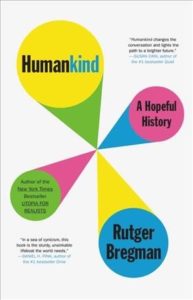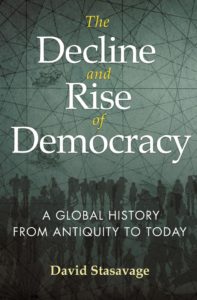Governments around the world are turning to surveillance technologies to track the spread of COVID-19 and the impact on privacy and human rights could be long-lasting, notes Rachelle Faust, an assistant program officer for the National Endowment for Democracy’s International Forum for Democratic Studies.

Shutterstock/Forum
China turned to the country’s sophisticated and far-reaching surveillance network to limit the spread of the virus by drawing on location data, using smartphone software to enforce quarantines, and deploying drones to monitor the public’s movements, she writes in a new Power 3.0 blog post:
Chinese officials are loading public health apps that collect personal data with new features designed for use after the crisis…. In Moscow, the use of 178,000 facial recognition cameras to enforce quarantine orders has drawn criticism from human rights groups over the lack of regulations to guarantee that collected data will be deleted. In Iran, the Ministry of Health sent a text message directly to mobile phones across the country recommending that citizens download a diagnostic app that collects intimate personal data from the users’ device and tracks their locations in real time, in many cases without the user’s consent.
What must separate the pandemic response of liberal democracies from those of authoritarian regimes is a measured approach to public health surveillance that balances the need to address imminent health risks with a commitment to transparency and accountability, Faust adds.
 Taiwan’s pragmatic “warm power” diplomacy during the COVID-19 outbreak represents a low-key approach to boosting its international participation while minimizing the burden for its sympathetic international partners and friends, says analyst Wen-Ti Sung, a visiting fellow at the Australian Centre on China in the World at The Australian National University.
Taiwan’s pragmatic “warm power” diplomacy during the COVID-19 outbreak represents a low-key approach to boosting its international participation while minimizing the burden for its sympathetic international partners and friends, says analyst Wen-Ti Sung, a visiting fellow at the Australian Centre on China in the World at The Australian National University.
The government of President Tsai Ing-wen’s successful management of the COVID-19 crisis has also made a strong case for liberal democracies as the superior form of government for public health crisis governance, he writes for The Diplomat.
Together with fellow high performers such as South Korea, Taiwan’s performance provides solid proof that liberal democracies can be just as effective in public health governance as authoritarian polities, Sung adds. In so doing, Taiwan helps prevent the COVID-19 crisis from diminishing the case for democracy in the global marketplace of ideas.
 In times of a global pandemic, political leaders need to heed civil society and see it, once again, as a source of values and policy solution, says Dr Roch Dunin-Wąsowicz, a Research Officer at the LSE Conflict and Civil Society Research Unit. Civil society institutions have long been a repository of expert knowledge, he writes for the LSE:
In times of a global pandemic, political leaders need to heed civil society and see it, once again, as a source of values and policy solution, says Dr Roch Dunin-Wąsowicz, a Research Officer at the LSE Conflict and Civil Society Research Unit. Civil society institutions have long been a repository of expert knowledge, he writes for the LSE:
One of the modest silver linings of the COVID-19 crisis is the restoration of fact-based policymaking. Scientists, predominately epidemiologists, but also sociologists and experts in public choice theory, are back in vogue – or so it seems. …In recent years many of them have been cast aside by populist politicians pandering to disenchanted publics. The COVID-19 crisis has the potential to restore their voices to the public debate. For example, in Italy, the decline of support for populist parties has accelerated. Europe’s right-wing populists, in general, have been on the decline throughout this emergency.
 In more general terms, the pandemic has accelerated the mainstreaming of once marginal ideas, many of which originated in civil society, he contends.
In more general terms, the pandemic has accelerated the mainstreaming of once marginal ideas, many of which originated in civil society, he contends.
A case in point…..
Rutger Bregman, author of the bestseller Utopia for Realists, begins his new book Humankind: A Hopeful History with what he calls this “radical idea” that most people deep down are pretty decent, notes NPR’s Scott Simon.
“If we can actually trust each other, if we do have the courage to move to a more realistic, hopeful view of human nature, then we can move to a very different kind of society as well — and build very different kinds of schools and democracies and workplaces,” he tells NPR.
 While many saw the suffering caused by COVID-19 as the result of a failure of an elected government to protect and serve its citizens, demonstrators this spring compared restrictions designed to halt the virus’s spread to “tyranny”—implying they were democracy’s true defenders, NYU’s James Devitt writes:
While many saw the suffering caused by COVID-19 as the result of a failure of an elected government to protect and serve its citizens, demonstrators this spring compared restrictions designed to halt the virus’s spread to “tyranny”—implying they were democracy’s true defenders, NYU’s James Devitt writes:
More globally, some historians, such as Michael Lind, have expressed concerns about democracy’s viability, sounding alarm bells over its “decay” in Western Europe and North America. But others, including Jill Lepore, have acknowledged that while the 21st century has seen a decline in the number of democracies, the concept has previously survived dire threats—such as in the 1930s, when industrialized nations turned to fascism.
But what does democracy actually look like? Devitt asked David Stasavage, dean for the social sciences at NYU, and author of the newly released The Decline and Rise of Democracy: A Global History from Antiquity to Today.







